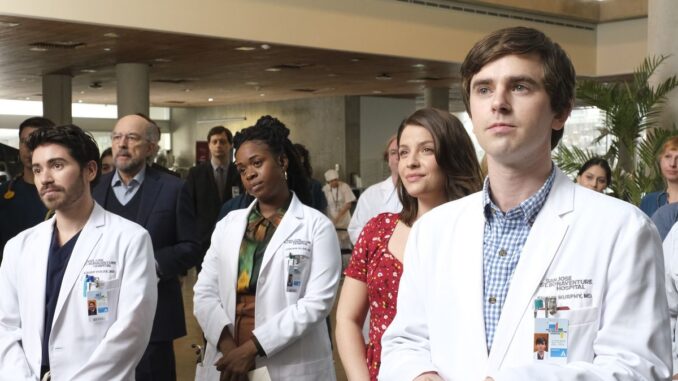
Every long-running series has that one episode — the one you remember not because it thrilled you, but because it broke you. For The Good Doctor, that moment came in Season 3, Episode 20 — “I Love You.” The episode that changed everything.
It begins like many others: chaos, urgency, the hum of alarms. But when the earthquake hits San Jose, the world inside St. Bonaventure Hospital collapses — literally and emotionally. By the time the dust settles, the show has delivered one of television’s most gut-wrenching goodbyes: the death of Dr. Neil Melendez.
Nicholas Gonzalez’s Melendez wasn’t just another attending. He was the quiet anchor of the surgical team — disciplined, kind, the moral compass Shaun often looked to when logic failed. Watching him die after hours of heroism felt like losing the show’s heartbeat. There were no melodramatic speeches, no miracles. Just the slow, devastating truth of a life ending while others continue.
That restraint is what made the episode unforgettable. The writers didn’t turn Melendez’s death into spectacle. They made it human. The tremor wasn’t just geological — it was emotional. As Lea sobbed over Shaun’s guilt, as Claire whispered her final goodbye, as the team faced the unbearable weight of continuing rounds the next morning — The Good Doctor reminded us why grief feels so universal: because it always comes in the middle of something unfinished.
What sets this episode apart is how deeply it mirrored the show’s central question: What does it mean to be “good”? For Shaun, it meant accepting that sometimes the best doctor still loses the patient. For Claire, it meant finding strength in heartbreak. And for the audience, it meant confronting the truth that compassion can’t always save those we love.
Freddie Highmore’s performance in that final scene — silent, trembling, his logic crumbling under the rawness of loss — distilled seven seasons of emotional growth into a few seconds. Shaun doesn’t cry like most people. He processes pain through facts, through patterns, until the truth pierces him too deeply to compute. That moment — his whispered “I should have saved him” — is not just Shaun’s grief, but ours.
Even years later, fans say they still can’t rewatch it. And that’s the mark of The Good Doctor at its best: it doesn’t just depict tragedy; it translates it. It takes the sterile world of scalpels and monitors and fills it with humanity so real, it’s hard to face twice.
Melendez’s death reshaped the show’s emotional DNA. It forced every character — and viewer — to grow, to heal, to accept that medicine, like life, is built on loss as much as miracles. In that way, “I Love You” isn’t just an episode title. It’s a eulogy — for a character, a mentor, and for the innocence the show left behind that night.
So yes, maybe we can’t watch it twice. But we never stopped feeling it. And that’s why The Good Doctor remains, even in its quietest heartbreaks, one of television’s most profoundly human stories.
